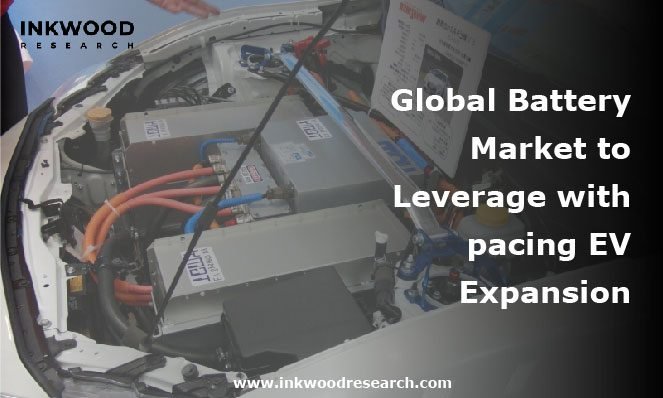With the concept of a low carbon economy and saving energy to safeguard the already deteriorating environment and enhance air quality, the retailing of pollution-free hybrid & electric vehicles is becoming one of the most preferred choices. In contrast to several public qualms and hesitations about its benefits with regards to environmental protection, the theory is getting clearer as more renewable energy is being utilized by the global consumer pool through the usage in the EV market.
The Collaboration
The global battery market is anticipated to undergo a severe form of opportunistic growth as there has been ongoing research, development, and promotion of electric vehicles that rely immensely on the lightweight feature and enhanced battery storage. EVs have paved the path of one of the most effective means for straightaway reduction of fuel consumption, minimization of environmental pollution, and easy conformity towards various national and international strategies for sustainable development worldwide.
The automotive industry plays a critical role in the advancement of both the electric vehicle and the battery markets. The industry’s growth in the developing economies of Indonesia, Mexico, India, Vietnam, and Thailand substantiates this claim as the EV segment is being amplified considerably as the development for a more advanced variety of lead-acid batteries is being prevailed.
Most companies operating in the automotive sector are investing heavily in developing batteries specifically made for electric vehicles, which will effectively propel the demand for the global battery market. The Toyota Motor Corporation is focusing on producing electric cars powered by a solid-state battery and is planning to launch these vehicles by 2022. The German company, BMW, had signed a partnership in 2017 with the US-based Solid Power for manufacturing the next-generation electric vehicle batteries.
Technology Pave the Way
Lithium-ion, Nickel hydride & solid-state batteries are considered a few of the key battery storage technologies utilized by the automobile industry. Furthermore, the sustained governmental support for the uptake of sustainable energy systems, the convenience of charging stations, dwindling battery prices, and volatile fuel costs are propelling the rapid uptake of electric vehicles across the globe. The Lithium-ion batteries have considerably good load characteristics and are essentially eco-friendly with relatively minimal disposal issues. Those being commercially available in various sizes or shapes adds another winning factor for their higher uptake by the EVs. The Nickel hydride batteries have high energy density than lead-acid batteries and have a relatively long lifespan, making them perfect for electric vehicles. The solid-state battery technology involves using solid electrodes and electrolytes that significantly minimize the damage from electrolyte leakage, heavyweight, and accidental explosions upon overcharging and discharging. The smaller, lighter variety of solid-state batteries will be beneficial for EVs in the near future.
Competitive Incentives
A few companies established in certain regions of North America and Europe are investing millions in innovating the electrically powered battery vehicles to reduce the dependency on non-renewable energy sources, like petroleum. For instance, the company, Hitachi Automotive Systems Ltd., had initiated the manufacturing of a particular variety of lithium-ion batteries that would boost the fuel efficiencies of hybrid electric vehicles. This strategy has increased the demand for electric vehicles in the European and Chinese markets.

